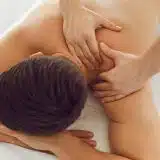Massage for Insomnia
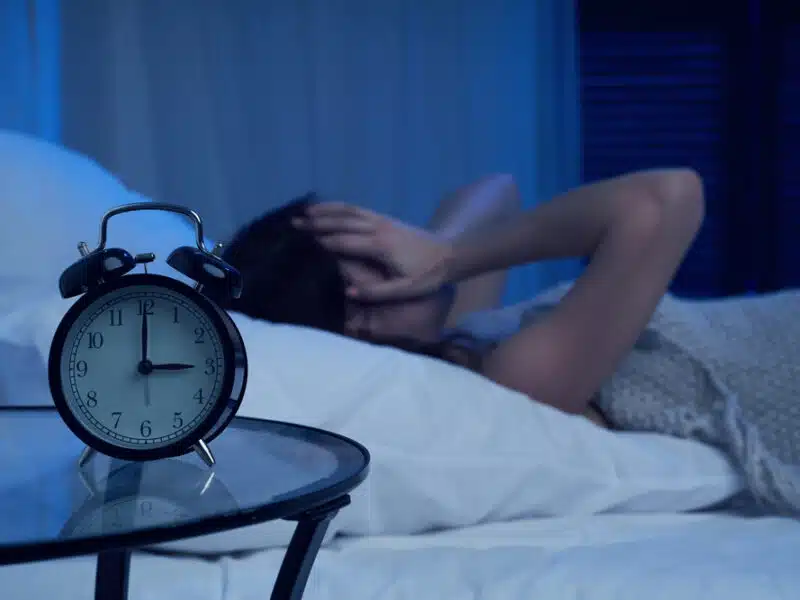
Unlocking the Power of Touch: Massage Therapy as a Natural Remedy for Insomnia
What is Massage 26th Jul, 2023
Insomnia, a common sleep problem, affects millions of people worldwide. It is distinguished by chronic difficulties falling or staying asleep, or both, resulting in non-restorative or poor-quality sleep. Insomnia has an influence that continues beyond the nighttime hours, causing weariness, emotional disorders, and decreased performance at work or social events.
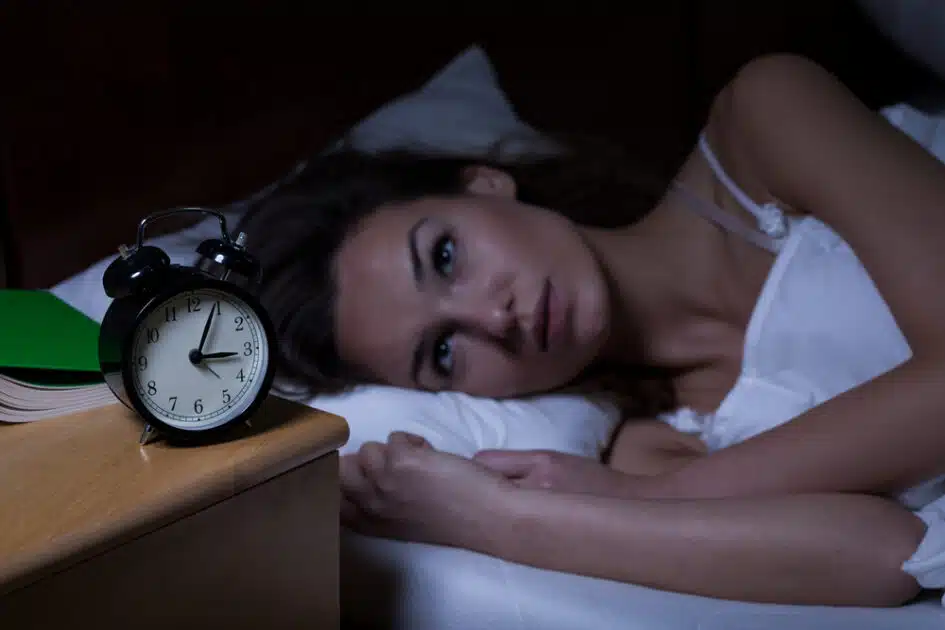
Also, it can be caused by various factors, including stress, worry, chronic pain, certain medical disorders, and harmful lifestyle behaviors.
Massage therapy has arisen as a non-pharmacological, holistic technique for combating insomnia. It promotes relaxation, decreases tension, relieves physical discomfort, and produces an environment favorable to better sleep. Massage treatments have been found in studies to improve sleep quality, making it a vital component of insomnia management.
The Role of Massage in Tackling
Living with insomnia is a difficult task. This chronic sleep problem, which is frequently associated with anxiety, poor lifestyle choices, and numerous medical disorders, prevents people from falling or staying asleep. With this disease, a good night’s sleep becomes a transient dream, resulting in a slew of day-to-day issues including weariness, mood fluctuations, and poor performance.
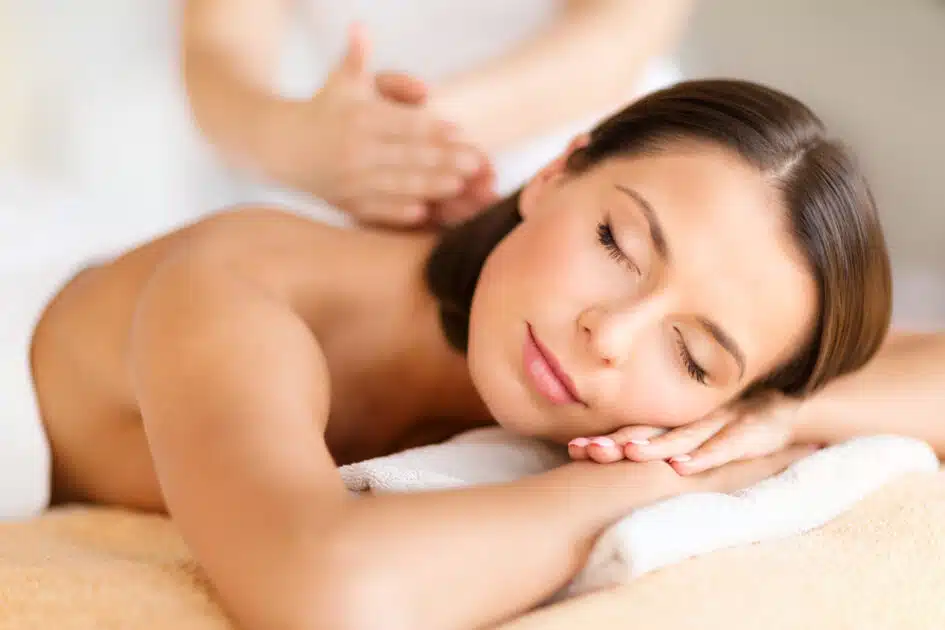
However, there is still hope. Massage therapy is emerging as an effective, comprehensive way to combat insomnia. This non-pharmacological therapy improves relaxation, reduces tension, relieves physiological discomfort, and prepares the body for better sleep.
We’ll learn how massage treatment may change the fight against sleeplessness by looking at numerous research and scientific facts.
Understanding Massage and its Benefits
Contrary to popular opinion, weariness does not imply slumber or the sensation of being weary. In actuality, fatigue is a lasting feeling of tiredness that continues even after a full night’s sleep. It is frequently a side effect of chronic diseases such as chronic pain, stress, and worry.
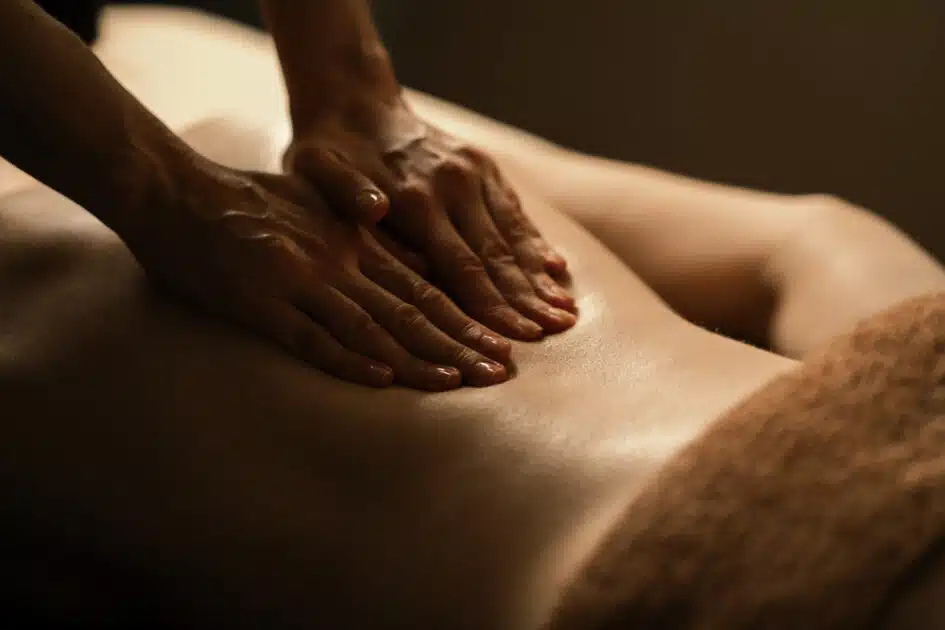
Here’s where massage therapy comes into play. It can:
Mitigate Pain: Chronic pain can be a significant hurdle to sound sleep. Massage therapy can reduce this pain intensity, whether it stems from illness, cancer treatment, surgery, or injury.
Reduce Stress: Massage therapy helps decrease cortisol levels (a stress hormone) while increasing serotonin and dopamine levels. These changes can foster feelings of happiness and relaxation, thereby enhancing sleep quality.
Massage Therapy: A Lifeline for Insomnia
Massage therapy isn’t just an add-on treatment but a potential lifeline for individuals grappling with disrupted sleep patterns due to conditions like:
Menopause: Postmenopausal women have noted improvements in sleep patterns and overall life quality after massage therapy sessions.
Cancer: For breast cancer patients undergoing treatment, massage therapy can significantly elevate sleep quality.
Congestive Heart Failure: Patients with this condition have reported stress reduction, decreased discomfort, and better sleep quality and duration after a back massage.
The Relationship Between Massage Therapy and Sleep Apnea
Sleep apnea, a disease in which the airway closes during sleeping, can cause snoring or unexpected awakenings owing to a momentary interruption of oxygen flow. Sleep apnea can be caused by factors such as age, obesity, and medical disorders such as high blood pressure and type 2 diabetes.
Massage treatment can help manage obstructive sleep apnea, resulting in a better quality of life and less snoring intensity.
In the sections that follow, we’ll go into the specifics of massage kinds and methods that might help you sleep better.
Massage Therapy for the Insomnia
Insomnia is a common sleep problem that impairs people’s ability to fall or remain asleep easily. This illness is frequently misdiagnosed as chronic tiredness, and its causes include a variety of stressors, bad lifestyle behaviors, and underlying medical issues. Insomnia can manifest itself in both acute and chronic forms, posing a slew of problems.
However, there is a ray of hope in this situation: massage treatment. This therapy method is gaining popularity due to its exceptional ability to alleviate insomnia symptoms and improve sleep quality.
Massage treatment has shown the potential to restore regular sleep patterns across a wide range of health conditions:
Menopause
A significant phase in a woman’s life, menopause often brings along a host of changes, one of them being sleep disruptions. Massage therapy, with its healing touch, has been instrumental in assisting postmenopausal women by refining sleep patterns and enhancing their overall quality of life.
Cancer
Cancer’s journey is physically and emotionally demanding, making sleep more of a luxury than a daily routine. For those undergoing breast cancer treatment, massage therapy has acted as a soothing balm, providing tangible improvements in sleep quality.
Congestive Heart Failure
This condition often leads to discomfort and heightened stress levels, further aggravating sleep difficulties. A well-executed back massage can serve as an efficient tool in lessening stress and discomfort, thus paving the way for improved sleep quality and duration.
Massage therapy is not only a complementary treatment or a pleasure. Instead, it’s a formidable method with the potential to transform the way we treat insomnia and other sleep-related illnesses. Its stress-relieving, pain-relieving, and sleep-improving characteristics make it a valuable partner in the fight against interrupted sleep patterns.
Recommended:
Bamboo Massage: 6 Benefits for Stress Relief
Massage for Improved Sleep
Professional Massages
Professional massages have the potential to significantly alter the trajectory of poor sleep patterns that have become deeply ingrained over time. A broad spectrum of massage styles, such as Swedish, sports, deep tissue, and trigger point massage, all converge on a common ground – they foster relaxation and promote healthier sleep patterns.
However, it’s worth noting that professional massages might come with a hefty price tag and demand a fair amount of time. Yet, if you view them as an investment in your well-being, the returns can be truly transformative.
Potential of Self-Massage
When professional massages appear out of reach owing to financial or time constraints, self-massage techniques provide a cost-effective and handy alternative. Here are some ways to consider including into your self-care routine:
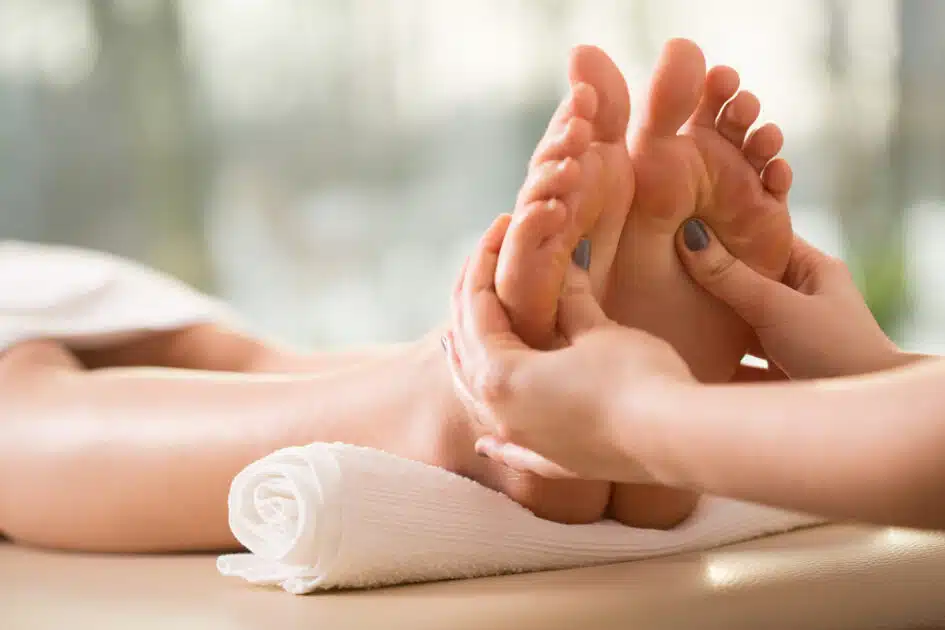
Foot Reflexology
Our feet are densely packed with up to 15,000 nerve endings, making them a potent gateway to overall health and relaxation. Engaging in regular foot massages can stimulate these nerve endings, promoting relaxation and potentially leading to improved sleep.
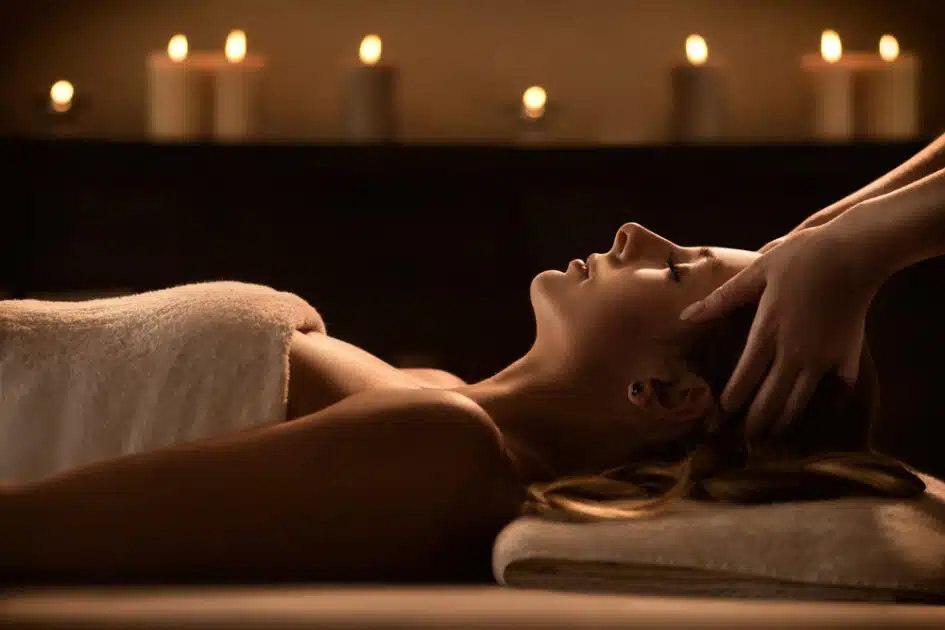
Head Massage
Our head houses several acupressure points that, when massaged, can offer relief from a myriad of ailments. Targeting these points through a self-administered head massage can act as a natural sleep aid.
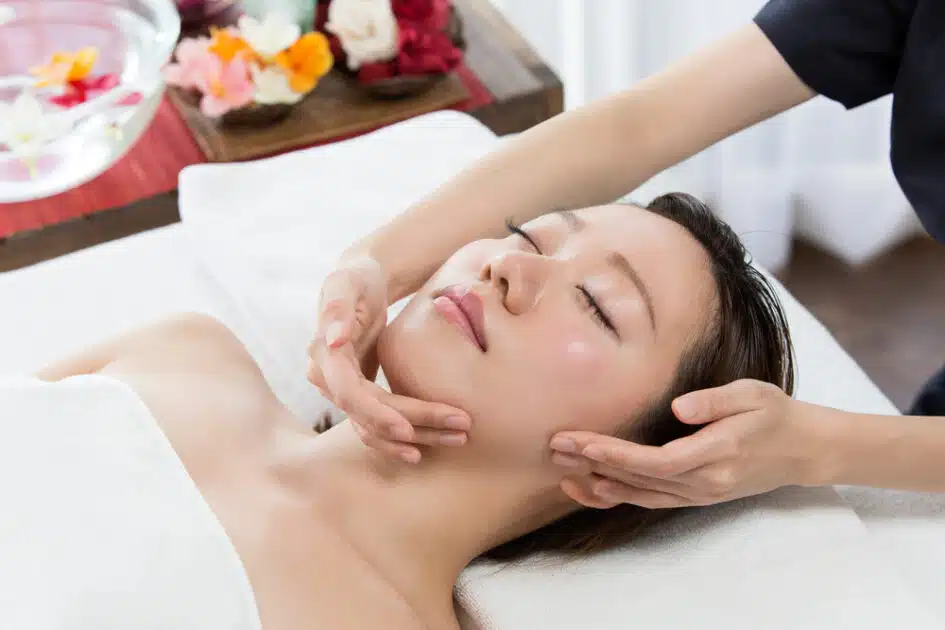
Face Massage
A facial massage doesn’t just offer cosmetic benefits. By releasing muscle tension and promoting blood circulation, a soothing face massage before bedtime can contribute to a more restful night’s sleep.
The process of learning self-massage methods and tuning in to your body’s response to these treatments can lead to a major increase in your sleep quality.
The quest for health should always be at the top of our priority list, and getting enough sleep is an essential part of that journey. If you’re having trouble sleeping, including massage treatment into your routine might be a natural and healthy way to improve your sleep quality.
Recommended:
Massage and Meditation
FAQs
What type of massage is good for insomnia?
Swedish and deep tissue massage can help promote relaxation and improve sleep.
Where is the pressure point for insomnia?
The “Spirit Gate” point, located on the inner wrist crease below the little finger.
Can massage cure insomnia?
While not a “cure”, massage can help alleviate symptoms and improve sleep quality.
How do you massage someone with insomnia?
Focus on relaxation techniques, applying gentle pressure to tension areas, and incorporating calming essential oils.
How can I induce sleep fast?
Practice deep breathing, create a calm environment, limit screen time before bed, and consider relaxation techniques like meditation.
The Bottom Line
Whether you’re struggling with occasional sleepless nights or battling chronic insomnia, integrating massage therapy into your wellness routine could be a game-changer. Not only does massage therapy offer immediate relief in terms of relaxation and stress reduction, but over time, it can also fundamentally shift long-standing, problematic sleep patterns.
Professional massages, while they might require a certain level of investment, can play a pivotal role in fostering deeper relaxation and healthier sleep. However, the power of self-massage should not be underestimated. Simple techniques, such as foot reflexology, head massage, and facial massage, can be performed in the comfort of your own home and still yield significant benefits for your sleep health.
It’s crucial to understand that while massage therapy can aid sleep and mitigate symptoms of insomnia, it’s not a standalone cure. It works best when integrated into a comprehensive sleep hygiene routine, which might include maintaining a consistent sleep schedule, creating a restful sleep environment, and managing lifestyle factors such as diet and exercise.













